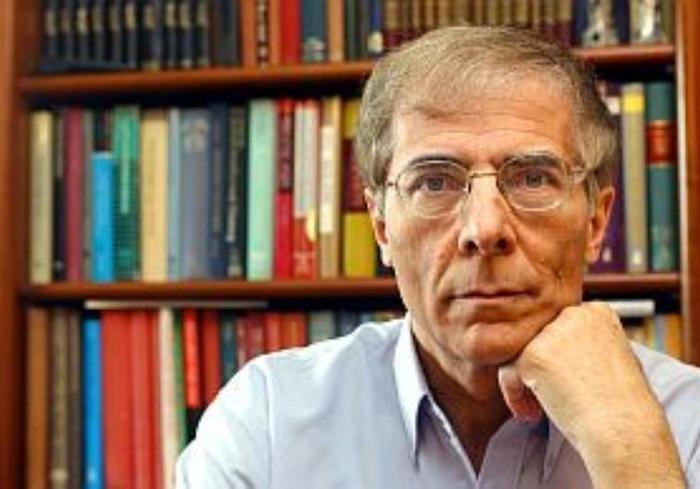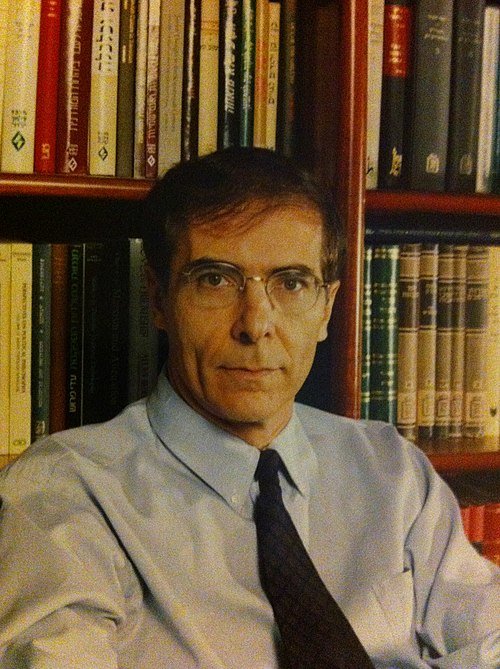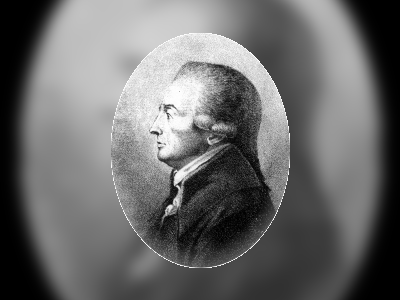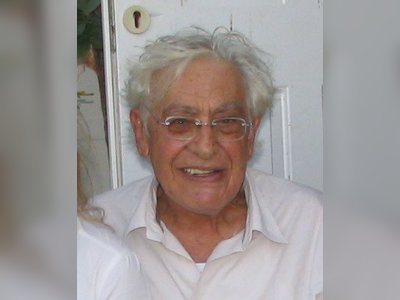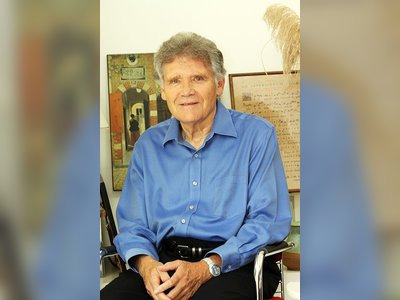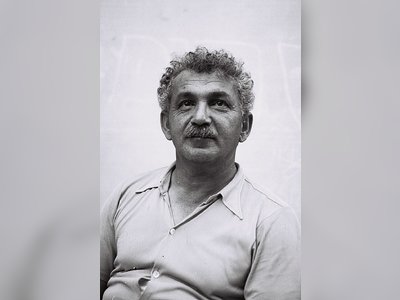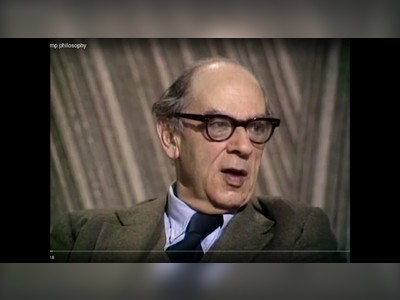מורשת גדולי האומה
בזכותם קיים
beta
Aviezer Ravitzky: An Insight into the Life and Works of an Eminent Israeli Thinker
Aviezer (Avi) Ravitzky, born on June 13, 1945, is an esteemed Israeli philosopher, an emeritus professor in the Department of Jewish Thought at the Hebrew University of Jerusalem, and a prominent scholar in Jewish sciences. A co-founder and leading figure of the Meimad movement, Ravitzky was awarded the prestigious Israel Prize for his contributions to Jewish thought in 2001.
Biography
Born in Jerusalem in 1945, Ravitzky was raised in the neighborhoods of Meqor Baruch and Rehavia. His early education unfolded at "L'dugma" Elementary and "Ma'ale" High School. He went on to serve in the Nahal Brigade and later headed the "Bnei Akiva" branch in Tel Aviv. Although Ravitzky began medical studies at Hebrew University in 1966, he opted to switch disciplines after two years. In 1968, he delved into the study of philosophy and Jewish thought at the same institution. During his academic tenure, he was chosen as the chairman of the Hebrew University's student union.
By 1977, Ravitzky earned his doctorate from Hebrew University for his research on "The teachings of Rabbi Zerachiah ben Isaac ben Shealtiel Hen and Maimonidean-Tibbonite thought in the 13th century," under the guidance of Prof. Joseph Sermoneta. Following this, in 1978, he pursued post-doctoral studies at Harvard University, mentored by Prof. Isadore Twersky.
However, a grave road accident on October 16, 2006, necessitated a prolonged recovery for Ravitzky.
He is married to Ruth, the sister of director Shmuel Hasfari. Together they have four children: Tami Biton, Rennah Ravitzky Pilzer, Shlomit Ravitzky Tur-Paz, and Roy Ravitzky, each with their respective achievements and contributions to Israeli society.
Academic Endeavors and Research
Ravitzky twice served as the head of the Department of Jewish Thought at Hebrew University. In 1989, he also took on the role of leading the Institute for Jewish Studies there. His numerous research works span the domain of Jewish thought from medieval times to the modern era, shedding light on the teachings of Rabbi Hasdai Crescas, Maimonides, and Rabbi Kook, among others.
Parallel to his university duties, Ravitzky was a senior fellow at the Israel Democracy Institute and led the Humanities division at the Mandel School for Educational Leadership. In 2001, he received the Israel Prize for his study of Jewish thought.
2006 marked the release of a book series, edited by Ravitzky, on "Jewish Spiritual Leaders and Creation," published by the Zalman Shazar Center. Six years later, in 2012, a commemorative book in his honor titled "In Public Opinion: Religion and Politics in Jewish Thought" was published. Another tribute was released in 2016, named "In Paths of Peace and Knowledge."
Political Views and Activism
Ravitzky stands out as a defining representative of the religious right in Israel. He co-founded the religious peace movements "Oz V'Shalom" and "Netivot Shalom" in the 1970s and 1980s. For many years, he chaired the Meimad movement. Although critical of the Gush Emunim and the erosion of the historic "Labor-left covenant," Ravitzky simultaneously acknowledged their role in solidifying the identity of religious Zionism.
In 1999, Ehud Barak proposed that Ravitzky serve as the Minister of Education. However, the plan never materialized, partly because Ravitzky was hesitant. Other propositions, including nominating him for the role of President of Israel, also didn't come to fruition.
Ravitzky supported the Disengagement Plan, but he expressed reservations about its implementation.
Awards
His illustrious career boasts awards including the Israel Prize, Fulbright, Rothschild, Lady Davis, Rieger, Memory Foundation for Jewish Culture, and the Movement for a Better Israel.
Writings and Reactions
(Here, it seems the text provides a list or mention of his articles and works, as well as feedback on his writings, but this section has not been elaborated upon in the provided text.)
This documentary-style overview paints a portrait of a thinker deeply rooted in the ethos of Jewish culture, academics, and Israeli politics.
Born in Jerusalem in 1945, Ravitzky was raised in the neighborhoods of Meqor Baruch and Rehavia. His early education unfolded at "L'dugma" Elementary and "Ma'ale" High School. He went on to serve in the Nahal Brigade and later headed the "Bnei Akiva" branch in Tel Aviv. Although Ravitzky began medical studies at Hebrew University in 1966, he opted to switch disciplines after two years. In 1968, he delved into the study of philosophy and Jewish thought at the same institution. During his academic tenure, he was chosen as the chairman of the Hebrew University's student union.
By 1977, Ravitzky earned his doctorate from Hebrew University for his research on "The teachings of Rabbi Zerachiah ben Isaac ben Shealtiel Hen and Maimonidean-Tibbonite thought in the 13th century," under the guidance of Prof. Joseph Sermoneta. Following this, in 1978, he pursued post-doctoral studies at Harvard University, mentored by Prof. Isadore Twersky.
However, a grave road accident on October 16, 2006, necessitated a prolonged recovery for Ravitzky.
He is married to Ruth, the sister of director Shmuel Hasfari. Together they have four children: Tami Biton, Rennah Ravitzky Pilzer, Shlomit Ravitzky Tur-Paz, and Roy Ravitzky, each with their respective achievements and contributions to Israeli society.
Academic Endeavors and Research
Ravitzky twice served as the head of the Department of Jewish Thought at Hebrew University. In 1989, he also took on the role of leading the Institute for Jewish Studies there. His numerous research works span the domain of Jewish thought from medieval times to the modern era, shedding light on the teachings of Rabbi Hasdai Crescas, Maimonides, and Rabbi Kook, among others.
Parallel to his university duties, Ravitzky was a senior fellow at the Israel Democracy Institute and led the Humanities division at the Mandel School for Educational Leadership. In 2001, he received the Israel Prize for his study of Jewish thought.
2006 marked the release of a book series, edited by Ravitzky, on "Jewish Spiritual Leaders and Creation," published by the Zalman Shazar Center. Six years later, in 2012, a commemorative book in his honor titled "In Public Opinion: Religion and Politics in Jewish Thought" was published. Another tribute was released in 2016, named "In Paths of Peace and Knowledge."
Political Views and Activism
Ravitzky stands out as a defining representative of the religious right in Israel. He co-founded the religious peace movements "Oz V'Shalom" and "Netivot Shalom" in the 1970s and 1980s. For many years, he chaired the Meimad movement. Although critical of the Gush Emunim and the erosion of the historic "Labor-left covenant," Ravitzky simultaneously acknowledged their role in solidifying the identity of religious Zionism.
In 1999, Ehud Barak proposed that Ravitzky serve as the Minister of Education. However, the plan never materialized, partly because Ravitzky was hesitant. Other propositions, including nominating him for the role of President of Israel, also didn't come to fruition.
Ravitzky supported the Disengagement Plan, but he expressed reservations about its implementation.
Awards
His illustrious career boasts awards including the Israel Prize, Fulbright, Rothschild, Lady Davis, Rieger, Memory Foundation for Jewish Culture, and the Movement for a Better Israel.
Writings and Reactions
(Here, it seems the text provides a list or mention of his articles and works, as well as feedback on his writings, but this section has not been elaborated upon in the provided text.)
This documentary-style overview paints a portrait of a thinker deeply rooted in the ethos of Jewish culture, academics, and Israeli politics.
- אביעזר רביצקי – ויקיפדיהhe.wikipedia.org
